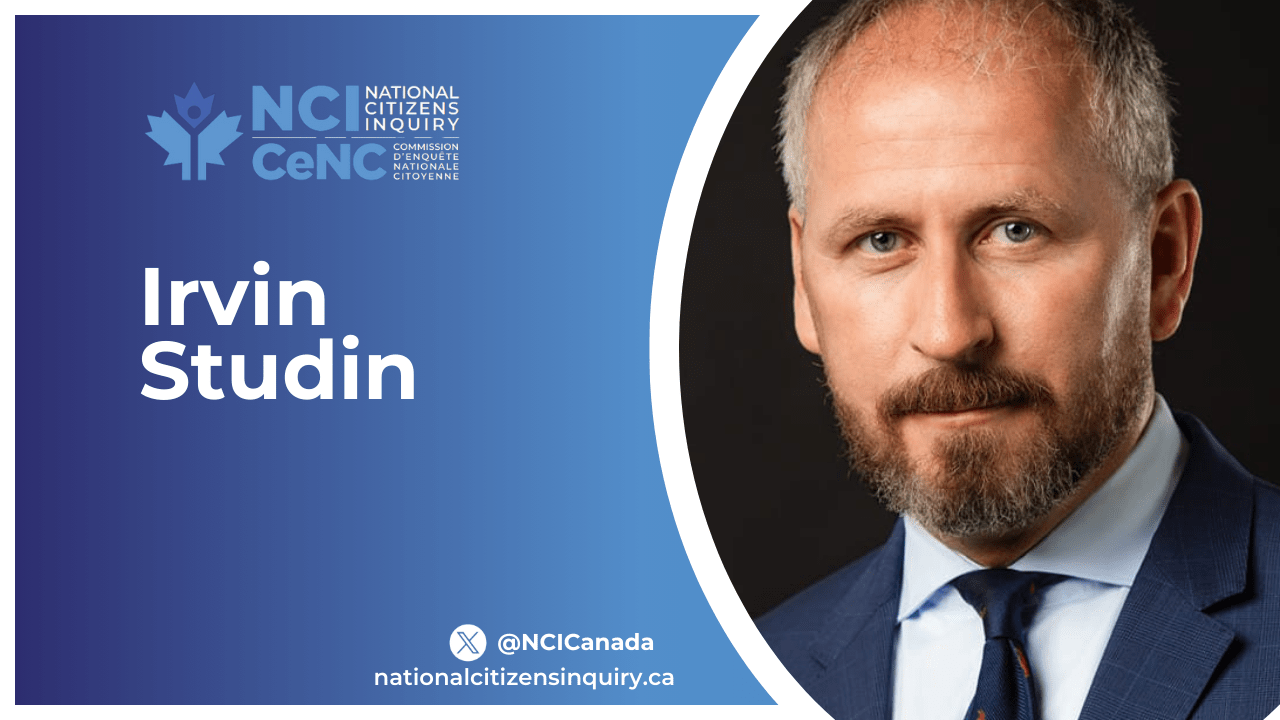Irvin Studin is a distinguished scholar, policy expert, and president of the Institute for 21st Century Questions with extensive experience in government, academia, and international affairs. He played key roles in developing national security policies, including Canada’s 2004 National Security Policy and Australia’s 2006 National Counterterrorism Policy. He testifies about the catastrophic impact of school closures during the COVID-19 pandemic, arguing they created a “third bucket” of children who dropped out of education entirely. He emphasizes the long-term societal consequences and urges that schools never be closed again.
* The above video is being streamed via Rumble. Check back often as we continue to update the complete list of links to all witness testimonies in both video and audio/podcast formats.
The transcript for this witness testimony is currently in production by our volunteers. It will be available soon here on this page and as a downloadable PDF.
Summary
Irvin Studin testifies about the devastating impact of school closures during the COVID-19 pandemic on children’s education and future prospects. He introduces the concept of the “third bucket” – children who completely dropped out of education during closures, neither attending physical school nor participating in online learning. Studin estimates that over 100,000 Canadian children fall into this category, with global numbers in the hundreds of millions.
He argues that closing schools has catastrophic long-term consequences for society, affecting future workforce capabilities, social stability, and democratic participation. Studin emphasizes that the impact extends beyond disadvantaged groups, affecting children from all backgrounds. He describes the mechanisms by which children fall into the “third bucket,” including lack of internet access, abusive home environments, language barriers, and special needs.
Studin criticizes decision-makers for failing to recognize and address this crisis, calling school closures a “policy crime.” He advocates for never closing schools again under any circumstances, arguing that the societal cost is too high. He proposes strategies for maintaining education during emergencies, including keeping closures extremely short, maintaining student engagement, and clearly communicating reopening plans.
The testimony also touches on broader societal issues, with Studin identifying seven major crises facing Canada, including economic, health, institutional, and national unity challenges. He argues that these crises are interconnected and exacerbated by the education crisis.
Studin calls for a renewed focus on education and leadership development to address these challenges and secure Canada’s future. He emphasizes the need for a serious, energized approach to rebuilding systems and preparing the next generation for a complex world.
Credentials
Irvin Studin has an impressive academic and professional background. He holds degrees from prestigious institutions including York University, the London School of Economics, and Oxford University, where he studied as a Rhodes Scholar. He earned his PhD from Osgoode Hall Law School as a Pierre Elliot Trudeau Scholar and won the Governor General’s Gold Medal. Studin has been a professor of public policy at leading universities across North America, Asia, and Europe. His government experience includes working in the Privy Council Office in Ottawa and the Australian Department of the Prime Minister and Cabinet. He was appointed to the first external advisory board of the Canadian Foreign Service Institute and was the inaugural recruit for the Canadian government’s Policy Leaders program. Studin played key roles in developing national security policies, including Canada’s 2004 National Security Policy and Australia’s 2006 National Counterterrorism Policy. As president of the Institute for 21st Century Questions, he leads efforts to analyze and provide solutions for major global issues. Studin’s diverse background and expertise in policy analysis make him a valuable voice on complex societal challenges.









